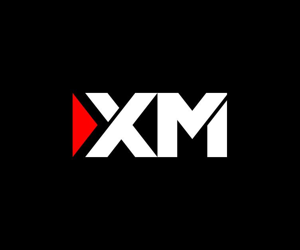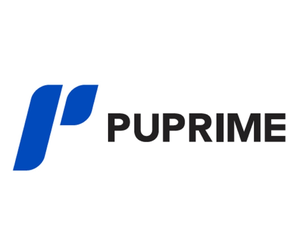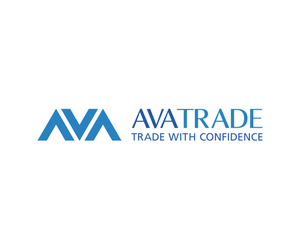AvaTrade has been around since 2006, and today it operates through a web of licensed entities across Europe, Australia, Japan, the UAE, South Africa and the British Virgin Islands. That footprint matters. Regulation shapes what leverage you can use, whether losses can exceed your deposit, and who steps in if a firm breaks the rules. After checking AvaTrade’s own disclosures and verifying them on public registers, we place the broker in our Silver Standard band. The group combines Tier-1 and Tier-2 oversight, offers sensible retail protections in core markets, and shows a long operating history. However, the absence of audited execution metrics and mixed third-party sentiment keep it short of Gold.
This review explains why. We start with regulation and client money rules, move through reputation and market presence, and then tally clear strengths and weaknesses before delivering the verdict—grounded in our methodology and the documents we reviewed.
Regulation & Safety
Corporate structure and licenses (verified):
- EU/Ireland (Tier-1): AVA Trade EU Ltd is authorised by the Central Bank of Ireland (CBI), Ref C53877. The CBI register confirms permission to execute client orders and deal on own account, with client-money rules in force. Under EU rules, retail clients benefit from leverage caps, margin close-out, and negative balance protection.
- Australia (Tier-1): Ava Capital Markets Australia Pty Ltd holds AFSL 406684. ASIC’s product-intervention order—effective since March 29, 2021—restricts retail CFD leverage to 30:1 on major FX, down to 2:1 on crypto CFDs, and requires negative balance protection and a margin close-out rule. AvaTrade’s own Australian disclosures and legal guides align with this.
- Japan (Tier-1): Ava Trade Japan K.K. appears on the Kanto Local Finance Bureau list as FIBO No. 1662, reflecting one of the strictest retail regimes in FX globally.
- UAE (Tier-2): Ava Trade Middle East Ltd is licensed in ADGM by the FSRA, Permission No. 190018. ADGM rules impose additional conduct restrictions for OTC leveraged products sold to retail clients.
- South Africa (Tier-2): Ava Capital Markets (Pty) Ltd is authorised by the FSCA as FSP 45984. The FSCA has publicly clarified that 45984 belongs to Ava Capital Markets and has warned against impersonators—useful context for clients.
- British Virgin Islands (Tier-3): Ava Trade Markets Ltd is licensed by the BVI FSC (Investment Business), often cited as SIBA/L/13/1049; the BVI FSC lists the entity on its public register. This entity typically serves “rest of world.”
Why this matters to everyday traders:
- Leverage and loss limits: EU (CBI) and Australia (ASIC) cap leverage at 30:1 for major FX and require negative balance protection. These rules aim to stop outsized losses and force automatic margin close-out before an account goes deep negative. ADGM has implemented similar retail protections through COBS updates. South Africa’s FSCA focuses on conduct and licensing; leverage caps are lighter but expanding. Offshore BVI licenses offer the least statutory protection.
- Client money and oversight: The CBI register for AvaTrade confirms client money rules, and ASIC’s regime requires segregation and dispute-resolution pathways. ADGM and FSCA add local supervision and enforcement. BVI requires licensing but provides lighter day-to-day oversight.
Bottom line on safety: AvaTrade clears our Four Floor Tests in Tier-1 and Tier-2 venues (explicit licenses, retail product controls, client money rules, active oversight). The presence of a Tier-3 entity does not sink the group, but it does reduce the overall safety score compared with brokers that operate only under Tier-1. On balance, Regulation = Strong, but not spotless.
Trader Reputation & Market Presence
AvaTrade has a long operating history and significant brand recognition. Reputation data is mixed—which is common across the CFD sector—but worth unpacking.
Positive themes we observed:
- Onboarding and support: Recent Trustpilot threads show praise for quick setup and responsive agents, especially for document checks and first withdrawals. While company-hosted pages highlight positive feedback, we anchor on external sites for balance.
- Clear legal documentation: Public order-execution policies and risk disclosures are available, though not unusually detailed by industry standards.
Recurring negatives:
- Withdrawal friction cases: We found forum posts describing withdrawal rerouting and delays tied to AML and “return to source” rules when deposits came from cards and bank wires at different times. These policies are standard, but poor communication frustrates clients.
- Historic compliance actions: In 2014, the Central Bank of Ireland fined Ava Capital Markets Ltd €165,000 for transaction-reporting failures. In 2020, Ava Trade Ltd settled with the Alberta Securities Commission over unregistered dealing in Alberta. We weigh older cases more lightly when remediation is evident, but they still inform risk.
Open-data context:
- ESMA and ASIC have dialed back public RTS 27/28 execution reports sector-wide, which makes apples-to-apples execution comparisons harder. In that environment, we value firms that publish audited execution metrics. AvaTrade does not publish audited stats on speed, slippage or requotes.
Net take: Reputation is generally acceptable for a global CFD broker, with support positives and a handful of withdrawal complaints that mirror industry norms. Enforcement history exists but is dated and appears remediated.
Strengths & Weaknesses
Where AvaTrade stands out
- Breadth of regulation: Multiple Tier-1 licenses (CBI, ASIC, Japan) plus Tier-2 (ADGM, FSCA). This improves baseline protections for many clients.
- Retail safeguards: Leverage caps and negative balance protection apply under EU/ASIC/ADGM entities. These rules limit catastrophic losses.
- Platform choice: MT4/MT5 and in-house WebTrader/AvaTradeGO; broad device coverage for simple workflows (source: broker materials and third-party reviews).
- Longevity: Operating since 2006 with global presence and local entities—useful for access to region-specific support and banking rails.
Where it can improve
- Execution transparency: No audited data on fill speeds, slippage, or requotes. We could only locate generic execution policies, not hard metrics. That caps our score.
- Consistency in service reports: External reviews include cases of withdrawal rerouting and communication gaps. These should be addressed with clearer explanations upfront about “return-to-source” requirements.
- Offshore reliance for RoW: The BVI entity covers many “other” markets with lighter statutory safeguards. Traders outside Tier-1/2 jurisdictions should understand that trade-offs.
Overall Verdict
Classification: Silver Standard (60–79 points). AvaTrade earns Silver because it clears our regulatory bar with multiple Tier-1 licenses, offers mainstream platforms, and shows adequate day-to-day service for most retail users. However, it falls short of Gold due to the lack of audited execution metrics, mixed third-party sentiment on withdrawals, and continued use of an offshore entity for many regions. If you live in the EU, Australia, Japan, the UAE or South Africa, and you open your account with the local regulated entity, you benefit from stronger rules on leverage, margin close-out, and negative balance protection.
Who is it for?
- Beginners who value clear guardrails and a simple platform lineup.
- Casual investors who use moderate leverage and prefer a broker with broad geographic coverage.
- Not ideal for data-driven traders who demand published, independently verified execution stats.
Peer context: Within our Silver band, AvaTrade sits alongside brokers that pair at least one Tier-1 license with decent platforms and service, but do not publish rigorous execution data or still route some clients through mid-shore/offshore entities.
Expert Review Notes (Staff Insight)
- Verification calls are proactive in several regions, which helps first-time clients but can feel “salesy” to experienced users. (We separate service enthusiasm from advice.)
- Order-execution policy is boilerplate. Without audited fill-speed/slippage disclosures, we cannot award top marks on performance even when day-to-day trading feels fine.
- Regulatory posture is mature. The group has addressed older enforcement issues and kept pace with new product-intervention rules in the EU and Australia. That’s a positive trajectory.
- Education and risk pages are serviceable, but risk warnings could be more prominent in some regional funnels.








